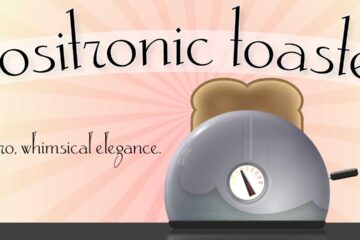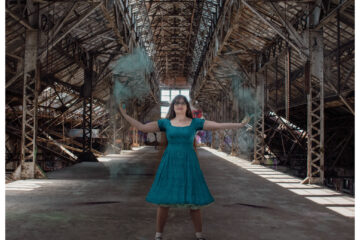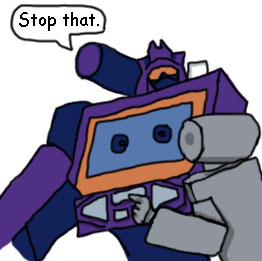I’ve written before about how genre is a set of expectations. Those expectations can be set for the reader when they see the author’s name, or when they enter a certain section of the bookstore, or see the cover art. Titles, back cover copy, the first sentence – all of these set up promises to the reader, and the author might not even know what those promises are.
Magazines will try to define their particular promises to their readers in their submission guidelines. Some do a better job defining their expectations than others, and they all hold out hope/ instill vagueness with the “otherwise surprise us!” line near the end.
Want a definition of science fiction? Look at the guidelines for Analog: some aspect of future science or technology is so integral to the plot that, if that aspect were removed, the story would collapse … The science can be physical, sociological, psychological. The technology can be anything from electronic engineering to biogenetic engineering.
Now look at the guidelines for Escape Pod: We are fairly flexible on what counts as science (we’ll delve into superheroes or steampunk on occasion) and are interested in exploring the range of the genre, but we are not looking for fantasy, magical realism, or more than a tinge of horror.
Notice how many Genre Names are there, each with its own hodgepodge of promises and expectations. Included because someone, somewhere had a fantasy, magical realism, or horror story they thought was “Science Fiction” – or at least close enough to submit. A lot of magazines have “do not want” lists and a lot of the need for that comes from a misunderstanding of reader expectation on the part of the author. (Or plain wishful thinking.)
Some of the expectations are setting. You can’t just make your own new fantasy world with advanced technology as a part of it. I mean – that’s “space fantasy” and falls firmly on the SF side of the marketing isle. Likewise, a story set in 15th Century France with aliens described from a 15th Century perspective is going to feel like fantasy even if every element has a scientific explanation.
Many genre readers expect a specific type of main character. I’m not saying that any character doesn’t work in any genre, but there are characters that fit better, that the fans of that magazine are going to have an easier time relating to. They might not even be able to articulate why.
Mysteries have to have inquisitive protagonists, obviously. It’s hard to guide the reader through clues without looking for them! “Hard boiled” mysteries prefer a certain type of protagonist over “Cozy Mysteries.” I recently attended a lecture on the Cozy Mystery and it included a very specific definition of the expected protagonist: almost always female, engaged in a non-law-enforcement profession (very often a shopkeeper), with a big personal flaw and a personal stake in the mystery. WOW. But then, is the average protagonist in a Hard Boiled Detective novel any less defined? Almost always male, in a law enforcement profession, unhappy, sardonic. Almost always single. I could go on.
Cozy Mysteries are ostensibly defined as murder mysteries without blood and gore (or even cussing.) But clearly the reader expectation goes beyond that to the sort of main character. Likewise, in Science Fiction, on the surface we all say the story just Has To Have That Science, but there are other things we want, too.
These are the “unwritten rules” of a genre. The expectations we don’t admit as readily.
Science Fiction yearns for the competent and logic-driven protagonist. Someone who values skill and knowledge.
I tended to write mostly incompetent and insecure main characters for years, because I am, myself, incompetent and insecure. Geoff Landis, a scientist and author in my writing group, continually took me to task, saying he couldn’t relate to my characters. It took decades to realize what he couldn’t relate to was the incompetence! Once I made my characters GOOD at something (it didn’t have to be everything) Geoff started loving everything I wrote. (If you read this, Geoff, you are not allowed to disagree. You are now my biggest fan, I said so.)
It was a short hop from realizing what my Friend the Hard Science Fiction Writer wanted to realizing this was what Hard Science Fiction People want – in general. It was about the time I realized this and started populating my Hard Science Fiction stories with Competent Characters, that I started selling Hard stories to Analog like I was Trevor Quachri’s best bud. (Five stories in two years! Can I keep bragging about that? Someone tell me when it gets unseemly?)
I had to talk it over with my husband to figure out what sort of main character happens most often in Fantasy. Fantasy wants the character who would drive the SF main character nuts by going with her ‘gut’. Also I’d say Conflicted and Code-Bound are popular. I can’t think of a fantasy story off the top of my head where the main character didn’t have to rebel against some statute they once held dear. But then, I’m not as widely read in Fantasy as Science Fiction so perhaps I should shush.
My husband pointed out that adventure games always have a quippy protagonist who is up for anything. The genre demands it. If you click on the spaceship and your character says, “Nah, I’ll stay here,” that ends the game right quick.
SO… I guess this long rambly blog post is just to say: there is a boundary between character and genre. If you’re looking to break into a genre especially, look at what sorts of people that genre’s readers want to read about. You’ll have an easier time of it.


